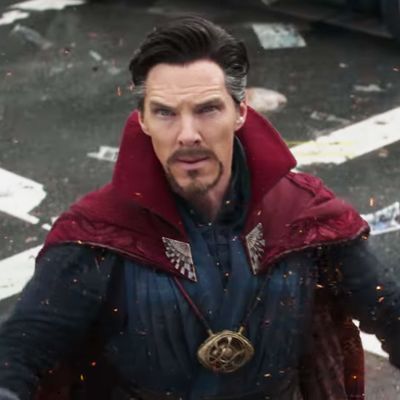
When the decision-makers at Marvel launch a new, successful franchise, it typically doesn’t take them very long to announce a sequel. Black Panther 2 is already in the works, and Marvel Studios head Kevin Feige is trying to bring director Ryan Coogler back. Guardians of the Galaxy was once seen as a big risk for Marvel, but the studio was so high on the finished film that the week before it came out, they announced a sequel. And while Ant-Man didn’t set the box office on fire in the summer of 2015, it did well enough overseas that Ant-Man and the Wasp was green-lit mere months later.
So what of Doctor Strange? The Scott Derrickson–directed film, starring Benedict Cumberbatch as a doctor turned sorcerer, was a solid hit for Marvel and earned good reviews when it was released in November of 2015. With a $232 million domestic gross, it made more money than the franchise-starters for Thor, Captain America, and Ant-Man, and its worldwide take of $677 million even surpassed the global grosses for the first two Iron Man movies. Shouldn’t we have gotten news on a sequel by now?
I asked Feige about the future of the Doctor Strange franchise this past weekend, knowing that the Marvel Studios president has always had a soft spot for this character. He said there are a few reasons why you haven’t heard anything about Doctor Strange 2 yet, and one of them is in theaters this week.
“We are getting a lot of Strange in Avengers: Infinity War, and he’s awesome,” said Feige. The supersized Avengers team-up, which begins a two-parter that will likely bring back Cumberbatch for next summer’s untitled fourth Avengers film, offers audiences a double shot of Doctor Strange in between his own movies.
Still, Feige says the primary reason that Marvel has refrained from announcing a sequel is that the studio is still trying to keep a lid on the films planned for after Avengers 4. Four years ago, the studio announced its entire slate from Captain America: Civil War to Avengers 4, and “I feel like we’re still trying to fulfill the promise of that,” said Feige. “That’s what Infinity War is, that’s what Captain Marvel is and Ant-Man and the Wasp, and that’s what Avengers 4 will be. That’s what we have to do first, before we start saying, ‘And wait until you see this next thing!’ I don’t want to talk about what I’m having for dinner when I’m about to have lunch.”
To that end, don’t expect Feige to reveal anything about Doctor Strange 2 at San Diego Comic-Con this summer: Marvel Studios almost always has a news-making Hall H panel, but this year, they’ll go dark and let the dust from Infinity War settle. “It’s not a time to announce the future stuff,” said Feige. “Ant-Man and the Wasp will have just come out, Captain Marvel will have just finished filming … if we can’t over-deliver and really put on the kind of show we want to, then we think it’s better to save it until the next year.”
Still, I wondered how this next Avengers two-parter might affect the stand-alone sequels still to come. While the Iron Man, Thor, and Captain America trilogies have seemingly reached their end points, Doctor Strange is just one of several Marvel series that is just getting started. If, as promised, Infinity War and its follow-up change the Marvel world forever — meaning the villainous Thanos uses his powerful Infinity Gauntlet to kill off characters and warp the reality of this universe in a permanent way — won’t that affect the plans laid out by the filmmakers steering the stand-alone franchises and their sequels?
Feige thought about it, and then by way of an answer, started to tell a story about the ending of the first Iron Man, where Tony Stark reveals to the world that he is the superhero.
“It was a scary idea,” said Feige. “It locked us into the idea that everybody going forward would know this secret identity that he had for years and years and years in the comic books. But it felt like there was a great advantage in painting ourselves into a corner that way. It felt completely natural that Robert Downey Jr.’s Tony Stark would do something like that, would not listen to the cards, would just blurt it out in a way that no other superhero ever had. And it felt like it would force us into something new and something fresh.”
Pulling the trigger on that concept even rattled director Jon Favreau, who was thinking sequels. “Favreau went, ‘But what do we do down the line?’ And we said, ‘Dunno. We’ll have to figure it out.’” And that’s the approach that Feige wants to adopt when Black Panther 2, Guardians of the Galaxy Vol. 3, and the presumed sequel to Doctor Strange must adjust to the new reality of the Marvel Cinematic Universe after Avengers 4. “Breaking eggs and then figuring out how to make an omelette from it is inherent in the entire history of our studio and the nature of the MCU,” said Feige. “So we will break eggs, and then go from there.”

